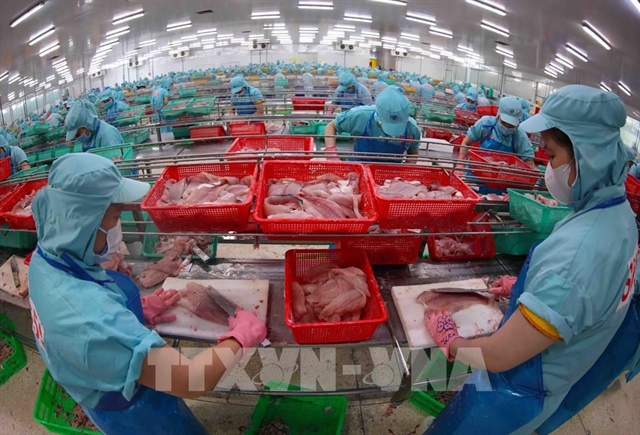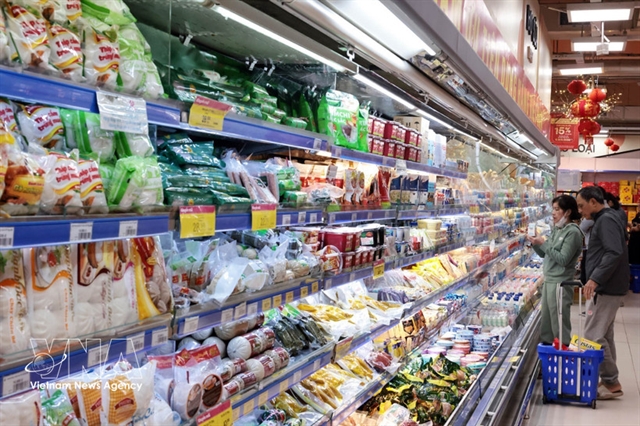 Economy
Economy


|
| Seafood exports to the US market by Mekong Delta enterprises are facing many challenges. — VNA/VNS Photo |
MEKONG DELTA — Amid the new US tariff policy, many Vietnamese businesses believe that, in addition to direct difficulties related to tax rates, indirect challenges will arise in terms of regulations on quality and traceability.
According to a survey by the Việt Nam Chamber of Commerce and Industry (VCCI) Mekong Delta branch in the 2020-25 period, the entire Mekong Delta region has about 80 enterprises exporting to the US market.
Of these firms, up to 84 per cent are concerned that the new US tariff policy will directly affect their 2025 business plans; over 53 per cent of businesses are concerned that goods will be imposed higher import taxes into the US, especially seafood, textiles and agricultural products.
Nguyễn Thị Thương Linh, deputy director of the Việt Nam Chamber of Commerce and Industry's Mekong Delta chapter, said that previous surveys have shown that one of the top difficulties for businesses is capital. But in this recent survey, up to 78 per cent of businesses said that current difficulties are related to high logistics costs; changes in US tariff policies and trade barriers; and lack of market information to help businesses respond promptly.
"Businesses are not only afraid of increased taxes, but also the unpredictability of tax policies from the US which affects businesses and the responses of other countries related to this issue."
For FDI enterprises, products have been standardised according to technical standards. However, the Mekong Delta mainly exports agricultural and aquatic products, which often depend on a complex supply chain.
Therefore, supply chain quality is critical and requires transparent coordination from many stakeholders.
The Government is now interested in supporting digitalisation and technology application to enhance product quality and manage data on origin.
Trần Công Sơ, director of Logistics and Import-Export of Pataya Việt Nam Food Industry Co., Ltd, said that transparent control of origin is not only the responsibility of the Government but also of each enterprise, to improve negotiation ability and expand the market.
The garment industry also needs similar transparency. Ngô Văn Chơn, deputy director of Tây Đô Garment Joint Stock Company, expressed his hope that the Government and management agencies will soon prevent origin fraud issues, as the US market pays close attention to this regulation.
Authorities in Cần Thơ City have also shown their determination in managing the origin and quality of export products in order to enhance the competitiveness of Vietnamese goods in the international market.
Faced with changes in US tax policy, businesses in the Mekong Delta are actively seeking solutions and hoping that trade negotiations between the Government and the US will bring good results. — VNS




